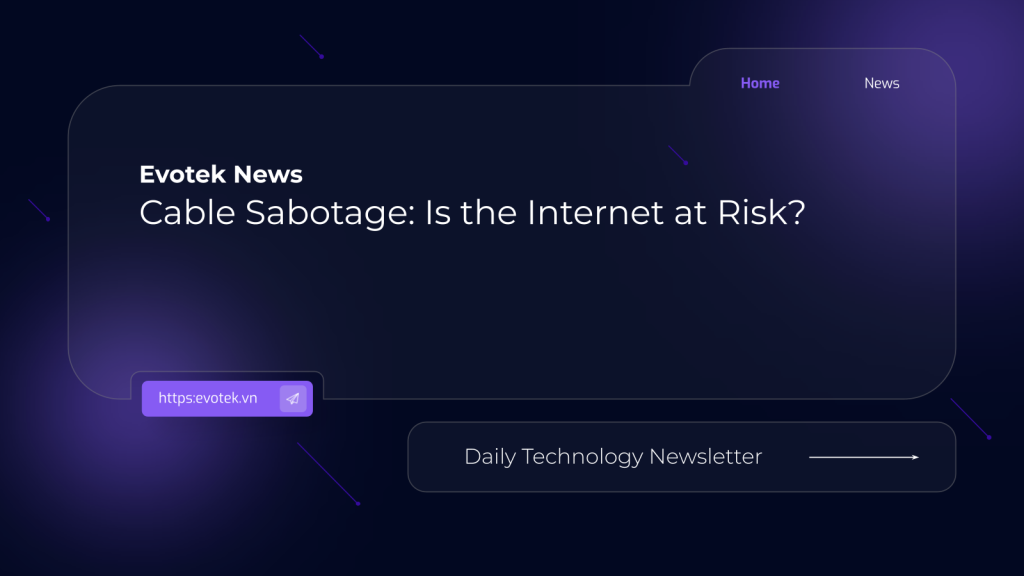Concerns are mounting over the security of vital subsea cables, the arteries of the global internet. A surge in suspected sabotage incidents has prompted major telecoms companies to raise the alarm, warning of potential widespread internet blackouts.
Vodafone, Telefonica (O2’s owner), and Orange have jointly appealed to UK, EU, and NATO officials, highlighting the growing threat to critical services. Their open letter emphasizes the far-reaching consequences of damage to these cables, potentially crippling global internet infrastructure, power grids, international communications, financial transactions, and other essential services.
These warnings follow a series of concerning events involving fibre optic cables on the seabed. These cables are responsible for transmitting a staggering 95% of all international data. The sheer volume of data they carry, combined with the challenges of monitoring them in remote locations, makes them particularly vulnerable.
Since October 2023, at least 11 subsea cables in the Baltic Sea have suffered damage. Similar incidents have also been reported in the North Sea. These events have sparked fears of deliberate sabotage by hostile actors, especially with the observation of over 50 Russian ships in areas with high cable density in the Baltic Sea. The UK is actively monitoring the Russian spy ship Yantar, suspected of mapping critical underwater infrastructure.
Concerns extend beyond Russian activity. Incidents around Taiwan have also raised questions about potential Chinese involvement.
Defence Secretary John Healey previously condemned the outages as “another example of growing Russian aggression.”
A joint committee on national security strategy is now investigating the UK’s ability to protect its subsea infrastructure. According to Matt Western, chairman of the committee, “As the geopolitical environment worsens, foreign states are seeking asymmetric ways to hold us at risk. Our internet cable network looks like an increasingly vulnerable soft underbelly.”
Telecoms companies are advocating for enhanced security measures, including classifying the entire subsea cable network as critical infrastructure. This designation would ensure increased protection, security investment, and streamlined permitting processes.
The call to action also includes enhanced collaboration between the EU, UK, and NATO in intelligence sharing, monitoring, and surveillance initiatives. The goal is to establish harmonized approaches for the subsea cable ecosystem, balancing security objectives with operational feasibility and viable business models.
Vodafone’s significant ownership of subsea cables, acquired from Cable & Wireless in 2012, underscores the company’s stake in this issue. Furthermore, US tech giants like Google, Facebook, and Microsoft are increasingly involved in owning this critical infrastructure.
The escalating threat to subsea cables demands immediate and coordinated action to safeguard the global internet and the vital services it supports.
Related Topics: Internet, NATO, Internet Security, National Security

 日本語
日本語 한국어
한국어 Tiếng Việt
Tiếng Việt 简体中文
简体中文